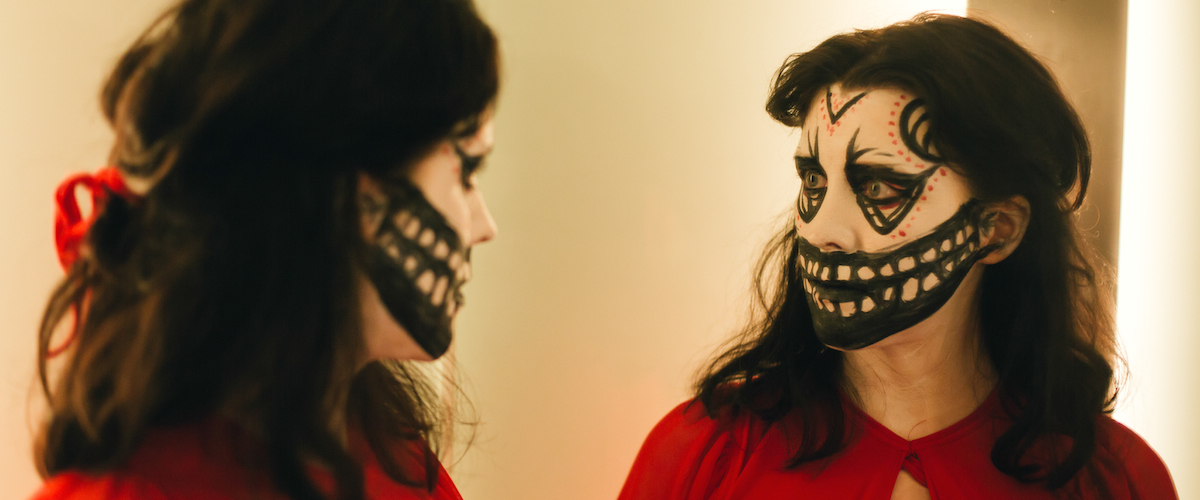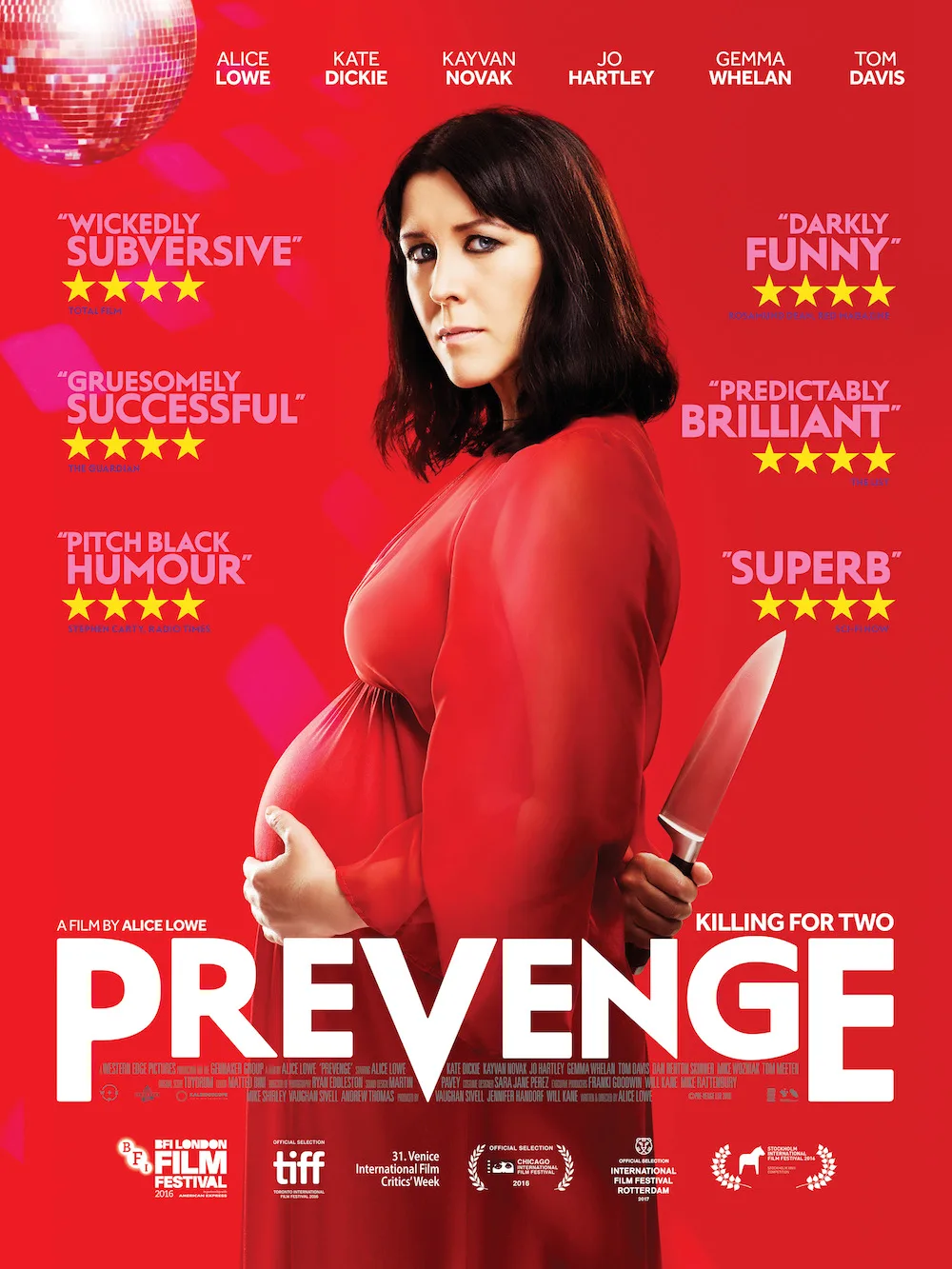The makers of “Prevenge,” a British horror-comedy about an expectant mother whose unborn child encourages her to go on a killing spree, only pick the softest targets: ugly caricatures of insensitive adults who have written off single mother Ruth (writer/director Alice Lowe) simply because she’s eight months pregnant. Ruth consequently preys on people who either fetishize or (more often) avoid her because they only see her baby bump.
Lowe (co-writer of equally misanthropic black comedy “Sightseers“) infrequently scores a few laughs when she makes fun of the schizoid disconnect between Ruth’s maternal instincts and her murderous actions. But more often than not, “Prevenge” asks us to scoff along with Ruth at the brutish nature of her victims, all while encouraging us to see these characters’ nastiness as an extension of her character’s subjective reality. “Prevenge” is, in this sense, a black-comedy that tries to have it both ways: victims’ boorish behavior suggests that they’re reaping what they’ve sown in blood—except when they’re humanized long enough to be seen as benignly indifferent. Lowe’s attempts at getting into anti-heroine Ruth’s head are largely unsuccessful, though her performance is sometimes effectively hysterical.
“Prevenge” begins as a series of monotonous encounters with obnoxious people who all want to screw over Ruth without hurting her feelings. There’s the pet shop owner who talks almost exclusively in crude double entendres, like “That is my big fat snake. Do you want to touch it?” and “Let me show you my private collection.” Then there’s DJ Dan (Tom Davis), a slovenly local DJ who lives with (and has his underwear washed by) his senile mother. And don’t forget Ella (Kate Dickie), the klutzy, cruel head of human resources who stammers as she denies Ruth her maternity leave: “Get it out of your system, the whole motherhood thing. Sort out your own business before you interfere with other people’s.” And don’t get me started on rock-climbing instructor Tom (Kayvan Novak), a small-minded muscle-head who flat-out refuses to assume liability for Ruth’s lesson given her pregnancy.
These disposable supporting characters might as well come with targets on them. Their deaths are not supposed to be justified, but there’s not much internal conflict going on with Ruth when she heeds the voice of her unborn child and kills ’em all. There are, in other words, very few signs that Lowe cares to distinguish her character’s sense of morality from her film’s perspective. Sure, there are some signs later on that Ruth’s grief—she’s a widow, and the circumstances of her husband’s death remain mysterious for much of the film—motivates her unsettling actions. But for the most part, Lowe encourages us to side with Ruth since she’s at least more sane/emotionally sensitive than the straw people she ruthlessly dispatches. How wacky that DJ Dan lives with his mom; laugh harder as one bloody testicle comes loose in his hands after Lowe eviscerates him.
Theoretically, this style of cruel cringe humor is just as valid as anything else. But so much of the film’s jokes feel small and smug. Instead of joking about how Ruth expects the world to be fair, Lowe’s comedy lashes out at people for being petty and small. Men are swine, women can be misogynistic, and children change everything: tell me another one.
The worst part is: it looks like we’re supposed to sympathize—on some level—with Ruth. “You don’t know anything about me,” Ruth laments at one point, a character-defining statement that serves as the character’s rebuke to a blunt authorial statement, delivered by a callous midwife (Jo Hartley): “You have absolutely no control over your mind and body anymore.” Still, what’s so sympathetic about a character who kills a man because he’s so drunk that he, after barfing in a wig, exclaims “I f—in’ love fat birds?” Who wants to be on the side of a character whose baby, who often serves as an internal monologue, tells Ruth that “You can forget about [sex] ever happening again. Selfish bastards. No consideration”? Or, more importantly, what separates this kind of toothless humor from the kind of neurotic comedy you’d find in an especially perverse “Cathy” cartoon?
The mix of tones and sensibilities in “Prevenge” is meant to be aggressively absurd. But it’s a fine line between goading you into relating with a mentally unstable heroine and daring viewers to check out. I really wanted to like “Prevenge,” especially when Lowe breaks up the sheer monotony of her typically painfully unfunny jokes with a cute throw-away line or two, like when Ruth tucks in Dan’s mom and offers her a hot chocolate. But “Prevenge” never really comes together beyond these little tangential asides, making it a gonzo idea in search of better execution.




















